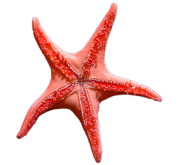Explore by the list below, or search for something in particular.

ASLC Admits Orphaned Otter Pup to Wildlife Response Program July 1, 2025
The ASLC has admitted three new patients in just four days, including an orphaned male sea otter pup from Homer on June 23. In addition, two orphaned harbor seal pups were admitted — a harbor seal pup from Nikiski on June 20, followed by another harbor seal pup from Juneau on June 23.
Read More »

Five more harbor seal pups patient admitted to the Wildlife Response Program from across Alaska June 25, 2025
The Alaska SeaLife Center (ASLC) has admitted five more harbor seal pups to the Wildlife Response Program in the span of twelve days from across the state of Alaska. Of the new patients, two pups remain in poor health, two are in critical condition, and one sadly succumbed to an infection despite intensive care efforts. These cases follow the recent admissions of an orphaned northern sea otter pup and four previously admitted harbor seal patients, all of whom required intensive rehabilitation and veterinary care.
Read More »

Three Harbor Seal Pups Found in Critical Condition Along Alaska’s Coast June 4, 2025
The Alaska SeaLife Center (ASLC) has admitted three more harbor seal pups to the Wildlife Response Program in the past seven days, marking a busy start to the 2025 season. One of the pups was born prematurely, one was found severely malnourished, and another was rescued after it was found alone, likely due to maternal separation. These cases follow the recent admissions of another premature harbor seal pup and an orphaned northern sea otter pup, all requiring intensive rehabilitation and veterinary care.
Read More »

Premature Harbor Seal Pup Admitted to ASLC Wildlife Response Program May 26, 2025
The male harbor seal was found on a remote beach in Kenai, Alaska, and it was evident that no mother was in the area. The pup was prematurely born, as indicated by his white lanugo coat, and the ASLC team knew he likely wouldn’t survive without immediate intervention. After receiving approval from the National Oceanic and Atmospheric Administration (NOAA), ASLC volunteers recovered the pup, and the animal was transported to the ASLC.
Read More »

Northern Sea Otter Pup Admitted to Wildlife Response Program May 13, 2025
The Alaska SeaLife Center (ASLC) has admitted its first live patient of the 2025 wildlife response season: a female northern sea otter pup rescued from a beach in Homer, Alaska. Estimated to be around two months old, the pup was found alone, lethargic, and malnourished.
Read More »

Tuula Hollmen, D.V.M, Ph.D. takes on an expanded role as Vice President of Life Sciences at the Alaska SeaLife Center April 14, 2025
The Alaska SeaLife Center (ASLC) is pleased to announce that Dr. Tuula Hollmen will be stepping into an expanded role that deepens our collaboration with UAF and more directly supports the future of our strategic plan. Starting May 12, 2025, Dr. Hollmen will serve as the VP of Life Sciences, overseeing Research, Veterinary Services, and Husbandry. She will retain her faculty designation at UAF.
Read More »

Alaska SeaLife Center Addresses Federal Grant Funding Freeze January 28, 2025
On January 27, 2025, the Executive Office of the President issued an executive order temporarily pausing agency grants, loans, and other financial assistance programs.
The Alaska SeaLife Center has been aware of the possibility of such a measure and has been proactively planning to address its potential impacts. We have already begun implementing steps to mitigate these effects and ensure the continuity of our critical programs and operations.
Read More »
The Alaska SeaLife Center has been aware of the possibility of such a measure and has been proactively planning to address its potential impacts. We have already begun implementing steps to mitigate these effects and ensure the continuity of our critical programs and operations.

Brad Ryan, Ph.D. Announced as ASLC Executive Vice President/Deputy Director December 6, 2024
The Alaska SeaLife Center (ASLC) is thrilled to announce the appointment of Dr. Brad Ryan as the Center’s first Executive Vice President/Deputy Director (EVP/DD). Brad’s dedication to community service extended to local government, where he served as Director of Public Facilities and later as Borough Manager. In these roles, he leveraged his scientific knowledge and leadership skills to enhance public services and infrastructure, making a direct impact on his community.
Read More »

Northern Sea Otter Admitted to Wildlife Response Program with Significant Facial Trauma November 23, 2024
The Alaska SeaLife Center (ASLC) admitted a juvenile northern sea otter to the Wildlife Response Program on the evening of November 16, 2024. The 11 kg male is estimated to be between 6 and 8 months old. The otter was first reported over a month ago with significant facial trauma and head swelling in the Seward small boat harbor.
Read More »

Orphaned Pacific Walrus Calf Finds New Home at SeaWorld Orlando September 25, 2024
The rare rescued Pacific walrus calf admitted to the ASLC wildlife response program in July of 2024 has found her long-term home and is now under the expert care of SeaWorld Orlando’s renowned animal care specialists. The calf, which was found orphaned and abandoned on the beaches of Utqiagvik, Alaska, has been named Ukiaq, which translates to “autumn” in the language of the Iñupiaq people who live in the area of northern Alaska where she was first found. Ukiaq – or Uki (pronounced “oo-kee”) as she is affectionately being called – brings the Alaskan spirit with her to Orlando, honoring the rich culture and traditions of the Alaskan Native peoples.
Read More »

United Efforts Bring Hope to Orphaned Pacific Walrus Calf in Alaska August 26, 2024
Five organizations from around the United States have come together to provide care to an orphaned Pacific walrus calf receiving rehabilitative care at the Alaska SeaLife Center (ASLC) in Seward, Alaska, in hopes of giving her a second chance at life. The ASLC is leading the heartfelt and intensive effort to care for the rare orphaned Pacific walrus calf that arrived from Utqiagvik, Alaska, on July 22, 2024.
Read More »
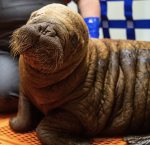
The ASLC Admits Rare Patient — an Orphaned Pacific Walrus Calf from Utqiagvik, AK July 25, 2024
The Alaska SeaLife Center is caring for a female Pacific walrus calf that arrived from Utqiagvik on July 22, 2024. Walruses are rare patients for the Wildlife Response Department, with only eleven total and just one other female since the ASLC opened in 1998.
Read More »
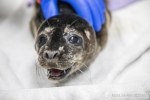
ASLC admits two more harbor seal pups, bringing total number of patients to six July 2, 2024
The Alaska SeaLife Center (ASLC) Wildlife Response Program now has six harbor seal pups under its care after the admission of two new patients — a male from Naknek admitted on June 17, and a female from Wrangell admitted on June 22.
Read More »
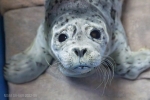
Alaska SeaLife Center admits female harbor seal pup from Kenai Beach June 18, 2024
The Alaska SeaLife Center (ASLC) admitted a newborn harbor seal pup to the Wildlife Response Program on June 4, 2024. The abandoned pup was rescued from Kenai Beach.
Read More »
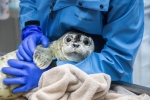
Alaska SeaLife Center admits two additional harbor seal pups, one premature June 4, 2024
The Alaska SeaLife Center’s (ASLC) Wildlife Response Program now has three harbor seal pups under its care after the admit of two new patients — one female from Kachemak Bay on May 20, and another female from the Copper River Delta on May 27.
Read More »
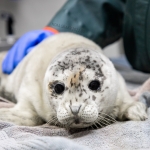
First Patients of the Summer Admitted to ASLC Wildlife Response Program May 15, 2024
The Alaska SeaLife Center Wildlife Response Program has admitted two premature harbor seal pups from Kenai, Alaska. Despite incredible efforts, one pup has passed away and the other is in serious condition.
Read More »

Dr. Wei Ying Wong Named President and CEO of Alaska SeaLife Center March 25, 2024
The Alaska SeaLife Center Board of Directors is pleased to announce that Dr. Wei Ying Wong has accepted the role of President and CEO. Dr. Wong is an experienced executive with a passion for marine science.
Read More »
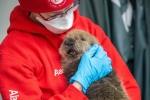
Alaska SeaLife Center Admits Third Rescued Sea Otter of 2023 November 10, 2023
The Alaska SeaLife Center (ASLC) admitted a male northern sea otter pup to the Wildlife Response Program on October 31, 2023, the third pup rescued this year. The approximately three-week-old pup arrived late Halloween night after a long transport from the remote coastal town of Seldovia, AK, and is currently under 24-hour care by wildlife response staff.
Read More »

Alaska SeaLife Center Announces Departure of Dr. Tara Riemer September 29, 2023
The Alaska SeaLife Center Board of Directors announced today that Dr. Tara Riemer is stepping down after 20 years of service with the Center, the last 11 years as President and CEO.
Read More »
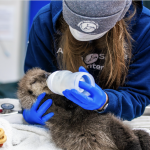
An Extraordinary Rescue: Otter Pup Survives Orca Attack and is Admitted to ASLC Wildlife Response Program September 18, 2023
The ASLC has admitted a second northern sea otter pup into the wildlife response program. The pup was orphaned following an orca attack incidentally witnessed by ASLC laboratory technician and wildlife response team member Natalie Hunter.
Read More »
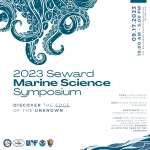
ASLC Helps Host FREE Seward Marine Science Symposium Event September 11, 2023
On September 17, 2023, the Alaska SeaLife Center (ASLC), Chugach Regional Resources Commission’s (CRRC) Alutiiq Pride Marine Institute, the University of Alaska Fairbanks (UAF) Seward Marine Center, and National Oceanic and Atmospheric Administration (NOAA) Ocean Exploration will host the 2023 Seward Marine Science Symposium. This free event, 10 a.m. - 5:00 p.m. AKDT, will be held at the university’s K.M. Rae Marine Education Building, 125 Third Avenue, Seward, Alaska.
Read More »
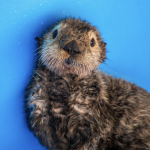
ASLC Admits Sea Otter Pup Patient Found on the Side of the Road in Kenai September 7, 2023
The Alaska SeaLife Center (ASLC) admitted a female northern sea otter pup to the Wildlife Response Program on September 4, 2023. This pup joins an extensive roster of 2023 patients cared for by the ASLC, including ten harbor seals, a fur seal, a walrus calf, and more.
Read More »
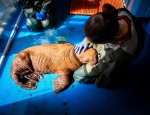
ASLC Mourns the Loss of Special Wildlife Response Patient August 11, 2023
Since his arrival, the walrus calf had been struggling with a number of serious health concerns on top of nutrient malabsorption, which can make treatment difficult to stay ahead of. Dr. Carrie, ASLC Director of Animal Health, explains that the calf was struggling with multiple complications, including hypoglycemia and gastrointestinal problems, in the 24 hours leading up to his passing.
Read More »

Neisha Jones Fills New Director of People and Culture Role at the ASLC July 27, 2023
The Alaska SeaLife Center is proud to announce that Neisha Jones has been chosen to become the Center’s first Director of People and Culture. In this newly created executive leadership position, Jones will serve as the organizational lead for all human resources and diversity, equity, accessibility, and inclusion (DEAI) functions. Jones is a certified professional in human resources and a diversity, equity, inclusion, and justice (DEIJ) practitioner with over 10 years of experience practicing human resources in the public, non-profit, and education industries. Jones’ extensive work with national organizations is a major asset in ASLC’s DEAI efforts and advancement of organizational environmental initiatives within Alaska and beyond.
Read More »

Dr. John Fraser Fills New Director of Mission Impact Role at the Alaska SeaLife Center July 20, 2023
The ASLC is excited to announce the appointment of John Fraser, Ph.D., AIA as the organization’s new Director of Mission Impact beginning on July 17, 2023. Dr. Fraser is a noted international conservation psychologist and architect, known in the zoo and aquarium community for leading research on the social value of zoos and aquariums. Fraser was a founder of the Association of Zoos and Aquariums Research and Technology Committee and has continued service on that committee for the past 15 years.
Read More »

